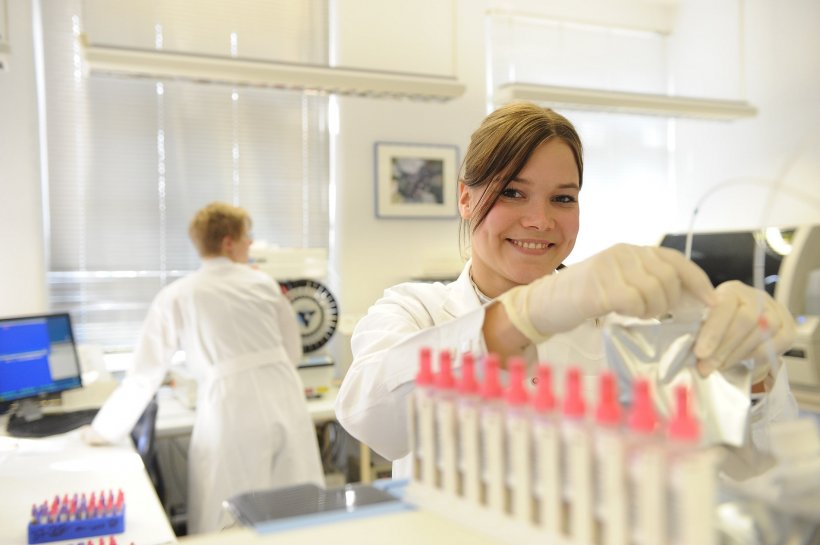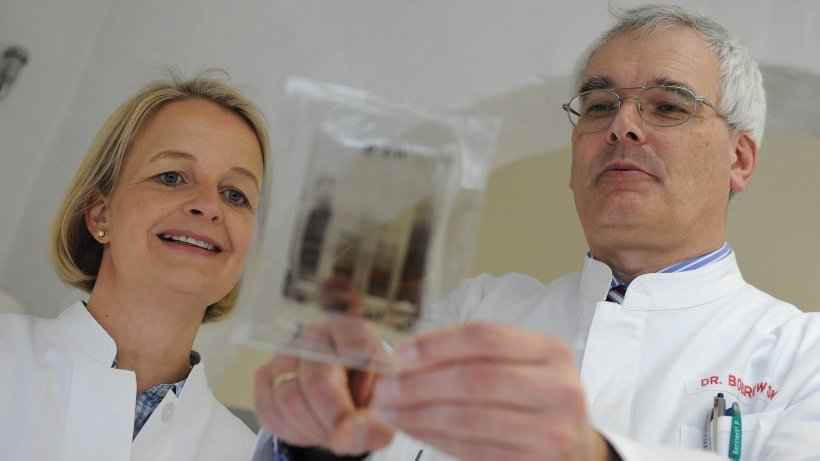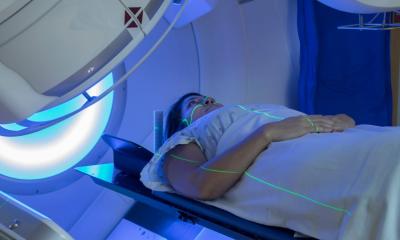
Image source: Association of German Laboratory Physicians (BDL)
Article • Laboratory economics
Lab services: Don’t cut the cost!
In recent years, whenever the German media reported on laboratory medicine, questions consistently arose: ‘How can excessive costs for lab services be cut?’ and ‘How could money saved be distributed among other medical specialists and general medicine practitioners (GPs)?’
Report: Dr. Andreas Bobrowski
The questions are myopic in their failure to address two important aspects of laboratory medicine – its significance for patient well-being and the preconditions that should be fulfilled to operate a lab successfully. These are closely intertwined, since lab medicine drives and is driven by innovation and thus requires ongoing and high capital investments. Without those investments medical progress cannot arrive. There is a third neglected aspect: innovative tests – even if expensive – might well reduce overall healthcare costs.
66% of medical diagnoses are made by lab physicians*
Roughly 2.5 percent of healthcare costs reimbursed by German statutory health insurers are generated in the laboratory. No doubt this money could be spent more wisely if payers and politicians drew the right conclusions. Over recent years, lab medicine has developed from a care-relevant to a system-relevant cross-sectoral discipline, which greatly influences the direction of the healthcare system as a whole: two thirds of all diagnoses are made, or confirmed by, approximately 1,000 hospital-based and office-based lab physicians.
Specialist lab physicians, aware of their influence in healthcare, are drafting lab diagnostic pathways and guidelines for their discipline. Inspired by the USA initiated campaign ‘Choosing wisely’ – based on preparatory work in the German Society for Clinical Chemistry and Laboratory – the National Association of Statutory Health Insurance Physicians, along with the Association of German Laboratory, are developing ways to introduce those pathways and guidelines into medical practice.
Their recommendations explicitly aim to enable high quality and cost-efficient care, particularly when complex and expensive therapies are involved.

Image source: Association of German Laboratory Physicians (BDL)
Teamwork is crucial
Close teamwork is necessary between referring GPs and hospital-based physicians on the one hand and lab physicians on the other. In this well-structured landscape of diagnostic and treatment pathways the ‘four-eyes’ principle (approval by at least two people) is the alpha and omega of patient safety, being a safeguard against wrong diagnoses and waste of resources.
However, benefits culled from this kind of cooperation depend, to a large extent, on the significance of lab physicians and the appreciation they receive. For instance, in the Netherlands cooperation with microbiology has contributed significantly to one of the lowest MRSA rates worldwide.
In Germany, Austria and Italy, lab services can be provided and assessed only by a lab physician, which creates a communication structure where the doctors involved are on equal footing, ensuring high diagnostic quality and treatment safety. In countries where lab services are not necessarily provided by lab physicians, but by medical technicians, results are forwarded to the referrer without further assessment. Thus, the referrers cannot discuss them with a lab physician who is well versed in all issues surrounding lab analytics.
On the European level, healthcare systems remain very different, even in diagnostic-technical disciplines, although medical diagnostics manufacturers, as well as professional associations, have long pushed for Europe-wide standards. In several EU Member States, and Switzerland, clinical-chemical and haematology basic services are provided on site, while, in Northern European countries, Benelux, Germany and Austria, large service provider groups with large catchment areas have evolved. These significant differences in services provision have created a wide variety of reimbursement structures within the EU. The number of tests have also increased and innovation pressure has intensified, while all healthcare systems record shrinking resources and increasing morbidity rates.
Which system is best?
Which current system is therefore best-suited to overcome future challenges? In terms of sheer numbers, lab medicine in Germany is facing the biggest task because, with 18 visits per person per year, Germans spend far more time with their doctors than any others in EU nations. However, the country’s medical lab system is highly structured and – due to low reimbursement rates – highly rationalised. In this ecosystem, the supraregional specialised lab as well as the onsite lab in in- and out-patient areas continue to fulfil important functions.
In Germany, lab physicians spearheaded digitisation by developing a comprehensive telematics infrastructure with electronic request and result transfer. The tightly knit network of transport services they organised ensures that, like urban patients, patients in remote rural areas share top diagnostic services – delivering the political promise of equal healthcare levels across the country.
Considering how this lab service infrastructure has evolved and is being further developed by lab physicians along with GPs and medical specialists, we can be confident that German quality of care is unmatched and prepared for future tasks. Thus, BDL clearly rejects any attempt to axe the requirement that lab physicians, rather than non-medical staff, should provide lab services. Even weakening the relationship of trust between lab physician and referring physician, BDL points out, puts quality of care at risk.
Do not weaken physicians’ cooperation
The constructive cooperation between physicians across disciplines will also be jeopardised when reforms in lab services are triggered merely for economic considerations – as was the case in the lab reform of 2018, which were driven not by the desire to improve patient care but to solve a reimbursement-related conflict between GPs and specialists when too many lab services are requested under budgetary constraints.
BDL thus demands a sustainable revision of this reform since necessary lab tests must not be discouraged by setting false economic incentives. It is not lab services that make healthcare expensive; it is therapies that are plain wrong, or therapies initiated too, that let costs spiral out of control.
Despite the moaning about increasing lab costs, tests as well as reimbursement levels for lab physicians’ services hover at the lower levels, compared to other European countries. Moreover, for many years lab costs reimbursed by the statutory health insurers have increased at a slower rate than healthcare costs in general.
Profile:
Chemist and physician Dr Andreas Bobrowski chairs the Association of German Laboratory Physicians, and promotes the rational handling of lab diagnostics by developing and implementing diagnostic pathways in healthcare. Early in his career, he joined a Lübeck-based laboratory group of which, 12 years later he became head (2005). A delegate to the regional Association of Statutory Health Insurance Physicians Schleswig-Holstein since 1999, he has been the only lab physician delegate in the National Association of Statutory Health Insurance Physicians since 2011.
* A laboratory physician has trained in scientific biomedical investigation and pathology and/or laboratory medicine, often with clinical subspecialty training.
24.10.2019











